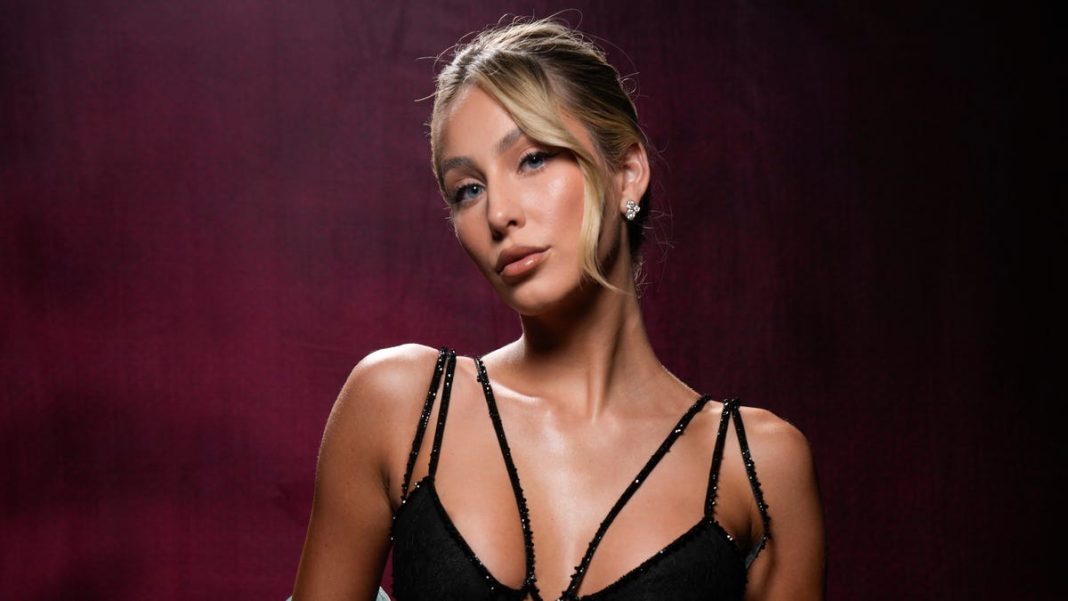Alix Earle and the Mental Health Confessions Taking Over the Internet
The song “She Looks So Perfect” by 5 Seconds of Summer, released in 2014, is making a comeback on TikTok for an unexpected cause: Gen Z creators are sharing their mental health stories with the tune. Influencer Alix Earle, who has 7.2 million followers, posted a video that playfully begins with “You’re so funny,” followed by a serious note about her medication journey, captioning it “live, love, lexapro,” referencing the widely-used medication for anxiety and depression.
Countless videos using the song start with “You’re so funny” and then transition into various mental health confessions like “thanks, I have anger issues” or “thanks, I’ve been on medication since seventh grade.” Creators discuss issues ranging from childhood trauma to domestic violence, fostering a dialogue on how humor can help young people bond over their mental health experiences.
Gen Z’s Openness About Mental Health Compared to Previous Generations
This emerging trend sheds light on the mental health challenges faced by younger people. Participants have shared videos discussing relationship issues, the trauma of growing up in a repressive environment, and the complexities of navigating separated or divorced parents.
One user reflected, “I’ve only ever been cheated on and use humor to cope.” Another admitted, “I’ve suffered from crippling anxiety for as long as I can remember.” Others used this format to touch on concerns around eating disorders with statements like, “Thanks, I can’t weigh myself” and “thanks, I can’t have MyFitnessPal.” Some creators also spoke about their career worries, suicidal thoughts, and grieving lost loved ones.
In a 2023 Gallup study conducted with the Walton Family Foundation, only 15% of Gen Z participants indicated their mental health was excellent. The findings highlighted a prevalence of negative feelings such as stress, anxiety, and loneliness, with just 47% feeling they are thriving—a stark contrast to a decade earlier, when 52% of millennials in the same age group reported excellent mental health. In 2004, 55% of 18 to 26-year-olds, including both millennials and Gen X, reported excellent mental well-being.
Jayla Johnson, a 23-year-old working in music and entertainment brand partnerships in New York City, stated that her generation tends to express their feelings candidly. “We don’t sugarcoat things,” she noted. “If we’re feeling something, we’ll let you know. You can’t expect anyone to just guess what we’re going through.”
Ryan Jenkins, a bestselling author who has extensively studied Gen Z and millennials, remarked that social media has offered Gen Z a platform to voice their opinions openly from the start. He pointed out that technology presents unique challenges, leading to a level of overstimulation not faced by earlier generations.
Gen Z’s Use of Humor as a Coping Mechanism
With platforms like YouTube and TikTok changing how teens discuss their mental health, TikTok’s informal, trend-based community creates a welcoming environment for sharing personal stories. In contrast to Instagram’s typically polished presentation, TikTok prioritizes user interaction, fostering a sense of community and encouragement in the comment sections of confession videos.
Humor is widely recognized as a practical coping mechanism, helping individuals navigate trauma, according to licensed psychologist Marni Amsellem. For some, humor can ease the emotional weight of traumatic experiences as well.
Jean Twenge, author of “iGen: Why Today’s Super-Connected Kids Are Growing Up Less Rebellious, More Tolerant, Less Happy–and Completely Unprepared for Adulthood,” suggests that Gen Z exhibits a more pessimistic outlook than millennials, possibly driving their preference for dark humor in response to negative feelings.
Recently, celebrities like Selena Gomez, Justin Bieber, Kendall Jenner, and Chrissy Teigen have contributed to the dialogue by sharing their mental health struggles. The participation of influential figures like Earle on TikTok makes these conversations more relatable for younger audiences.
Pop star Adam Lambert joined the trend with his own confession: “Thanks I kissed a man on live TV in 2009 and almost got sued.” Parenting influencer Lottie Weaver shared, “Thanks my dad died when I was four,” with her two million followers.
For Gen Z, this ongoing trend highlights the power of online platforms to broaden discussions around mental health, an initiative endorsed by experts in the field.
Terry Collins and Jenna Ryu contributed to this report.
Rachel Hale’s reporting on youth mental health is supported by a grant from Pivotal Ventures. Pivotal Ventures does not influence editorial content. Follow her on X @rachelleighhale.

